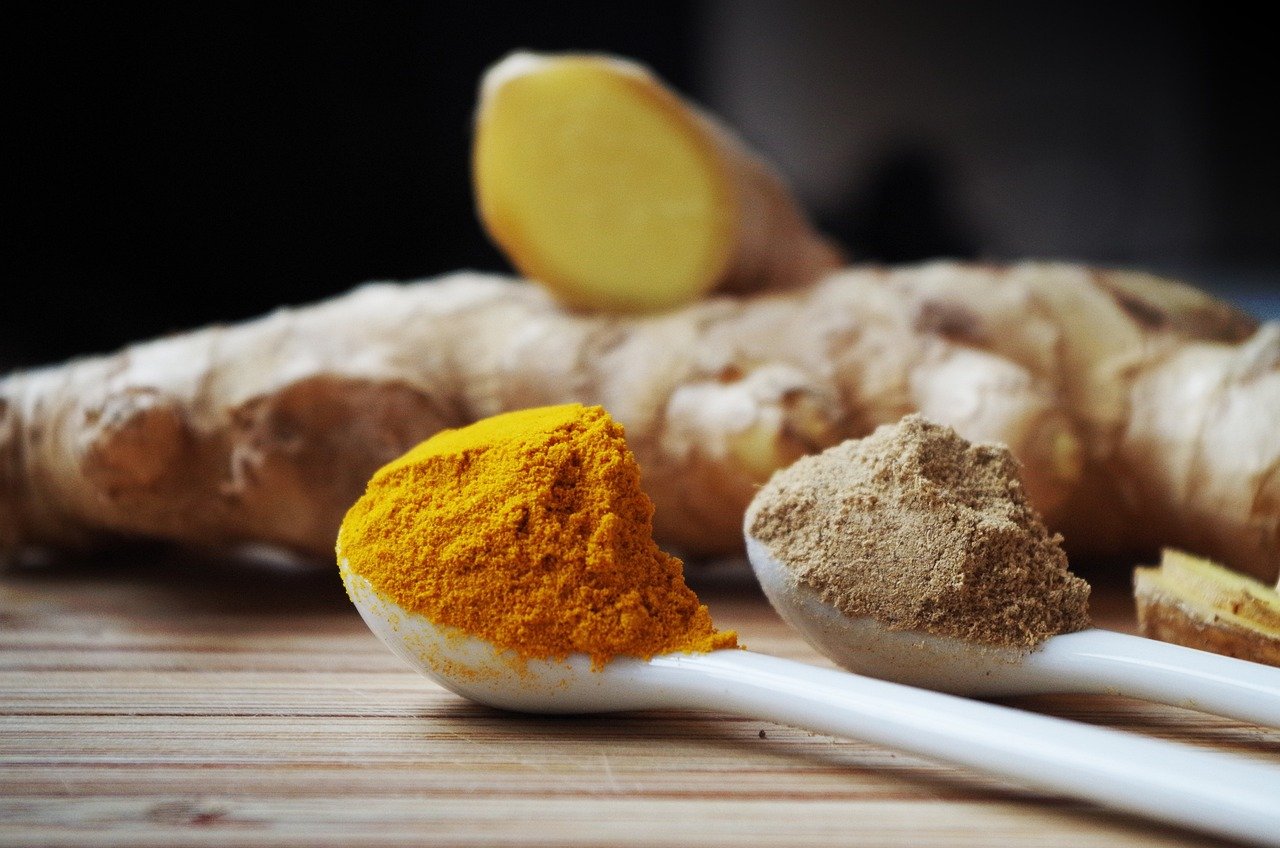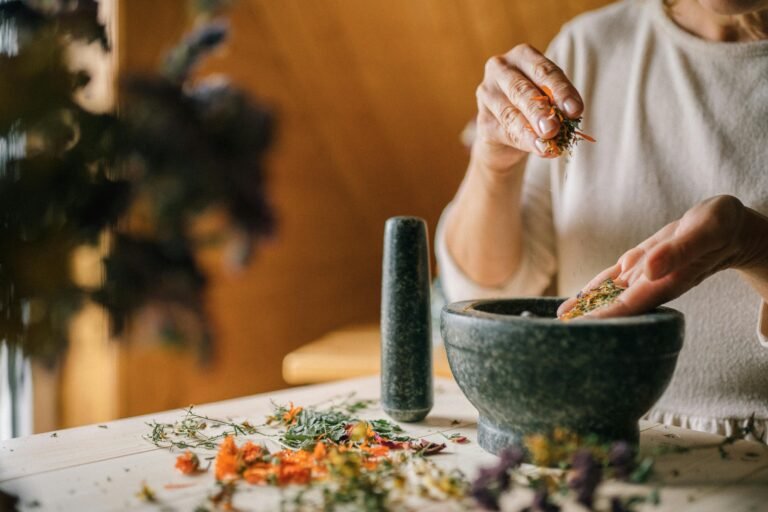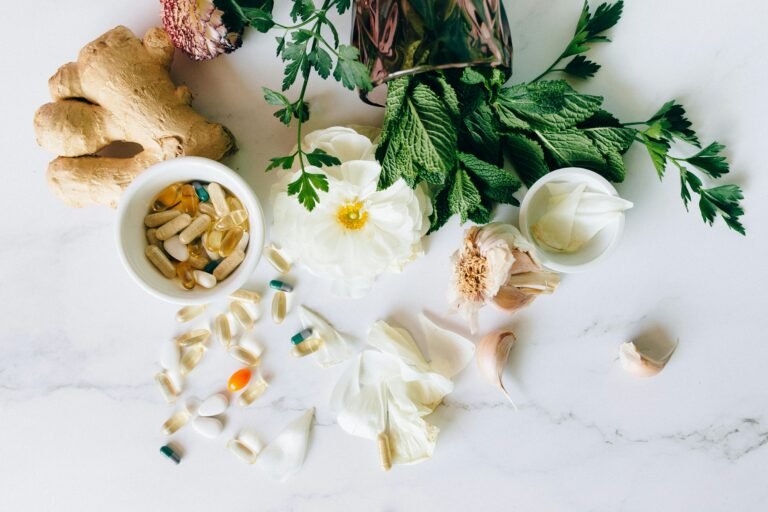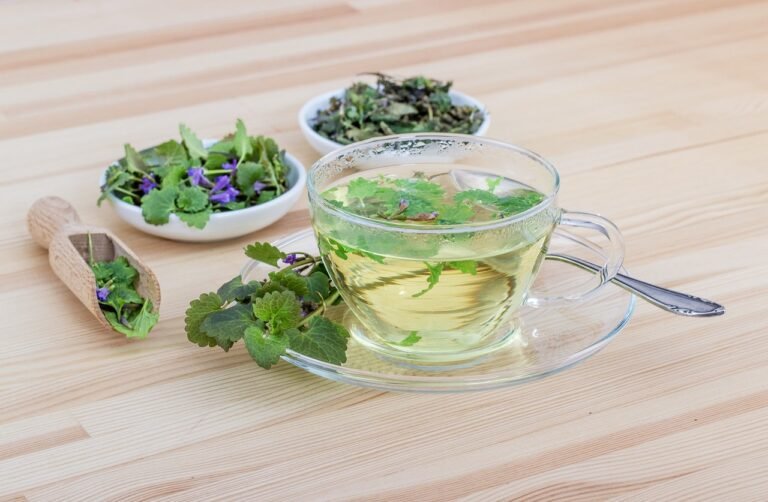Herbs for Inflammation: Fighting Pain and Swelling Naturally
If you’re tired of the constant companionship of joint and muscle pain or the steadfast presence of inflammation, you’re not alone. Many are turning to Mother Nature’s remedies, like turmeric and ginger, for their soothing properties that promise relief without a prescription.
Now, you might be thinking, “Can these herbs really make a difference?” Spoiler alert: they can! Herbs for inflammation are age-old allies in the fight against chronic pain and discomfort. From preparing aromatic herbal teas for daily rejuvenation to using potent herbal oils for on-the-spot relief, these natural remedies provide a holistic approach to healing. And let’s not forget the promise of long-term benefits with consistent use.
Combining these herbal wonders with other anti-inflammatory strategies, like a balanced diet or physical therapy, can transform your approach to pain management into a harmonious symphony of wellness. Let’s explore how these humble herbs can become your personal health heroes.

Top Anti-Inflammatory Herbs for Pain Relief
Turmeric for Joint Pain and Inflammation
When it comes to battling inflammation, turmeric is often hailed as the golden spice. Turmeric, rich in curcumin, has been used in traditional medicine for centuries. Have you ever added this vibrant yellow spice to your meals? If not, consider doing so! It’s a powerhouse for reducing joint pain and swelling effectively. Some studies even suggest that it’s as effective as certain medications in relieving joint discomfort. [source: Healthline]

SUPPORTS JOINT HEALTH: Turmeric is a common ingredient found in joint support supplements due to its phytonutrients which may promote joint comfort and flexibility.*
WITH ORGANIC TURMERIC ROOT: This clean formula is made from organic turmeric root and organic turmeric extract to deliver a clean curcumin supplement.
PREMIUM INGREDIENTS: NatureWise Curcumin Turmeric is vegan, gluten-free, and non-GMO. They are manufactured in the USA with high-quality ingredients from around the world in a cGMP-certified facility with third-party quality control audits.
Ginger for Reducing Muscle Aches
Another superstar of anti-inflammatory herbs is ginger. Known for its zesty flavor, ginger’s properties go beyond taste; it’s a natural remedy that can reduce muscle pain significantly. You might be surprised to know that gingerol, the active compound in ginger, has powerful anti-inflammatory effects, helping to alleviate post-exercise soreness [source: PubMed]. Essentially, it’s like a warm hug for your tired muscles.

BALANCED INFLAMMATION – Turmeric and Ginger Root Capsules Support a Healthy Inflammatory Response in your body. This Turmeric Supplement provides both Immune & Joint Support.*
SUPERIOR SCIENCE-BACKED INGREDIENTS – Ginger 4:1 Extract (4x more potent than regular ginger), Bioperine (Black Pepper Extract for Max Absorption) and Turmeric Extract Standardized to 95% Curcuminoids.*
How to Use Herbs for Inflammation
Preparing Herbal Teas for Daily Relief
Preparing an herbal tea each day can be a blissful ritual that doubles as an inflammation fighter. Whether you opt for turmeric tea, ginger tea, or a combination of both, these drinks are simple yet effective natural remedies for inflammation. A warm cup can be soothing and might even act as a gentle lullaby before bed, helping to ease swollen joints and muscles with each sip.
Topical Applications of Herbal Oils for Swelling
Fancy a bit of a DIY spa day? Topical applications of herbal oils can be just the thing for you! Oils infused with anti-inflammatory herbs can be massaged into swollen areas for localized relief. These oils seep deep into the skin, reducing inflammation like a balm that kisses away the pain. Consider essential oils from ginger and turmeric, which can provide relief right where you need it.
Long-Term Benefits of Anti-Inflammatory Herbs
Consistent Use for Chronic Pain Relief
Consistency is key when it comes to reaping the full benefits of anti-inflammatory herbs. Regular use can contribute to significant improvements in managing chronic pain. It is like watering a plant; with daily attention and care, the results flourish. Incorporating these herbs into your daily routine could mean fewer days disrupted by nagging pain.
Reducing Inflammation Naturally with Herbal Supplements
In today’s fast-paced world, herbal supplements for inflammation offer a convenient path to health. Supplements containing turmeric and ginger can be game changers, providing all the benefits without the hassle of preparation. It’s like having a personal health assistant in a bottle, helping to fight inflammation naturally while you go about your day. [source: WebMD]
Combining Herbs with Other Anti-Inflammatory Treatments
Using Herbal Remedies Alongside Physical Therapy
Why not double up on the benefits by combining herbal remedies with physical therapy? This duo can work wonders, with herbs providing internal support and therapy offering physical relief. It’s similar to having a support system: each part plays a unique role in achieving overall well-being. Together, they enhance mobility and reduce inflammation naturally.
Pairing Anti-Inflammatory Herbs with a Healthy Diet
Ever heard the saying, “you are what you eat”? Pairing anti-inflammatory herbs with a nutritious diet creates a robust defense against pain and swelling. Foods rich in omega-3 fatty acids, such as fish and flaxseeds, complement the inflammation-fighting properties of herbs like turmeric and ginger, crafting a potent cocktail for health.
Conclusion
Herbs for inflammation are not just ancient remedies; they are modern-day allies in fighting pain and swelling naturally. By incorporating turmeric, ginger, and other herbs into your daily routine, and combining them with physical therapy and a healthy diet, you embrace a holistic approach to wellness. These natural remedies can lead to improved quality of life, decreased reliance on medications, and more vibrant health.
FAQs
Q: Can I use turmeric for inflammation if I’m pregnant?
A: It’s best to consult your healthcare provider. Turmeric is generally safe in small amounts, but high doses might not be advisable during pregnancy.
Q: How often should I drink ginger tea for inflammation?
A: Drinking ginger tea once or twice daily can offer relief. However, listen to your body and adjust as needed.
Q: Are there any side effects of using herbal oils topically?
A: Some people might experience skin irritation. Always do a patch test before extensive use to ensure compatibility.
Q: Can herbal supplements completely replace anti-inflammatory medication?
A: While they can help reduce inflammation, supplements should not replace prescribed medication without consulting a doctor.
Q: What’s the best way to store these herbs?
A: Store dried herbs in airtight containers away from direct sunlight to maintain their potency.
Sources:





